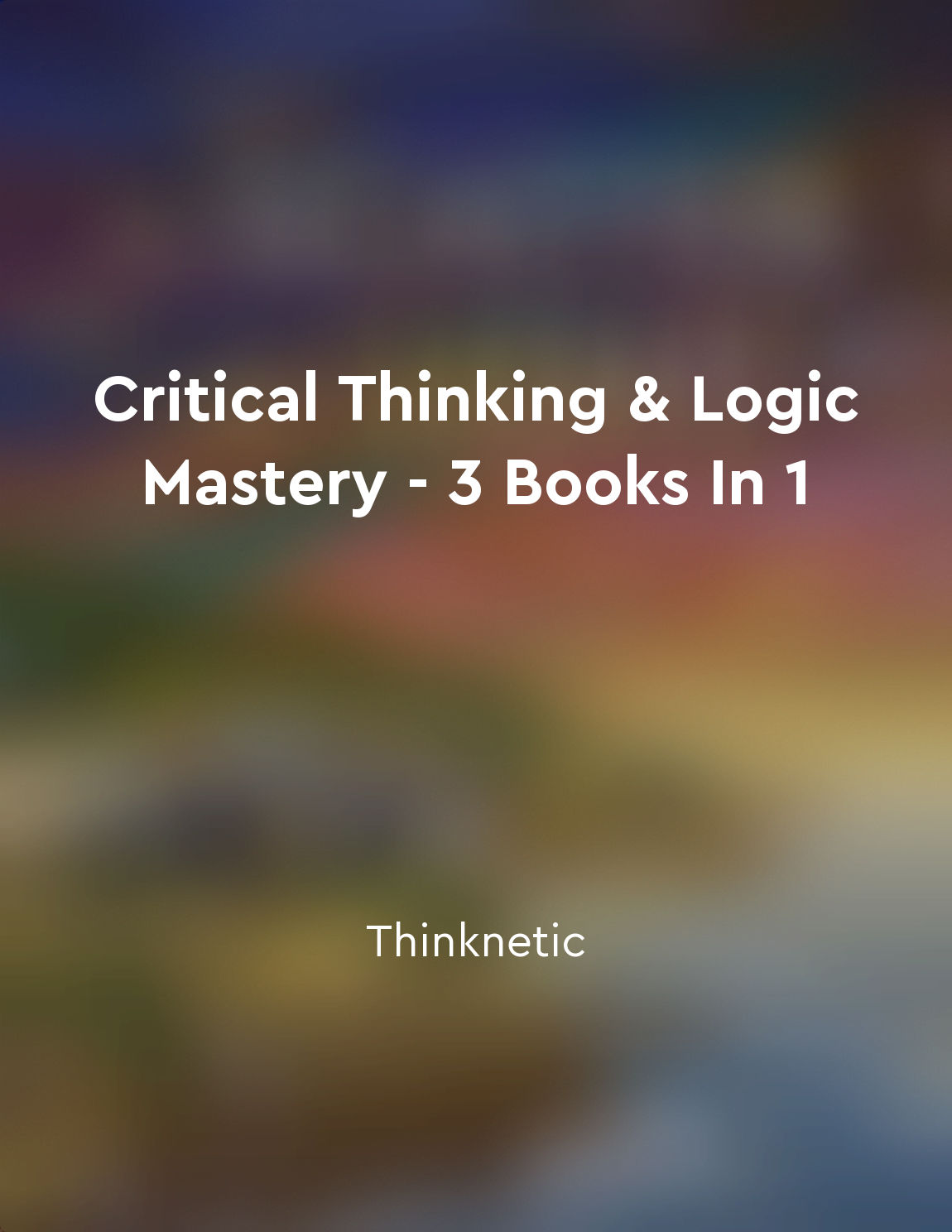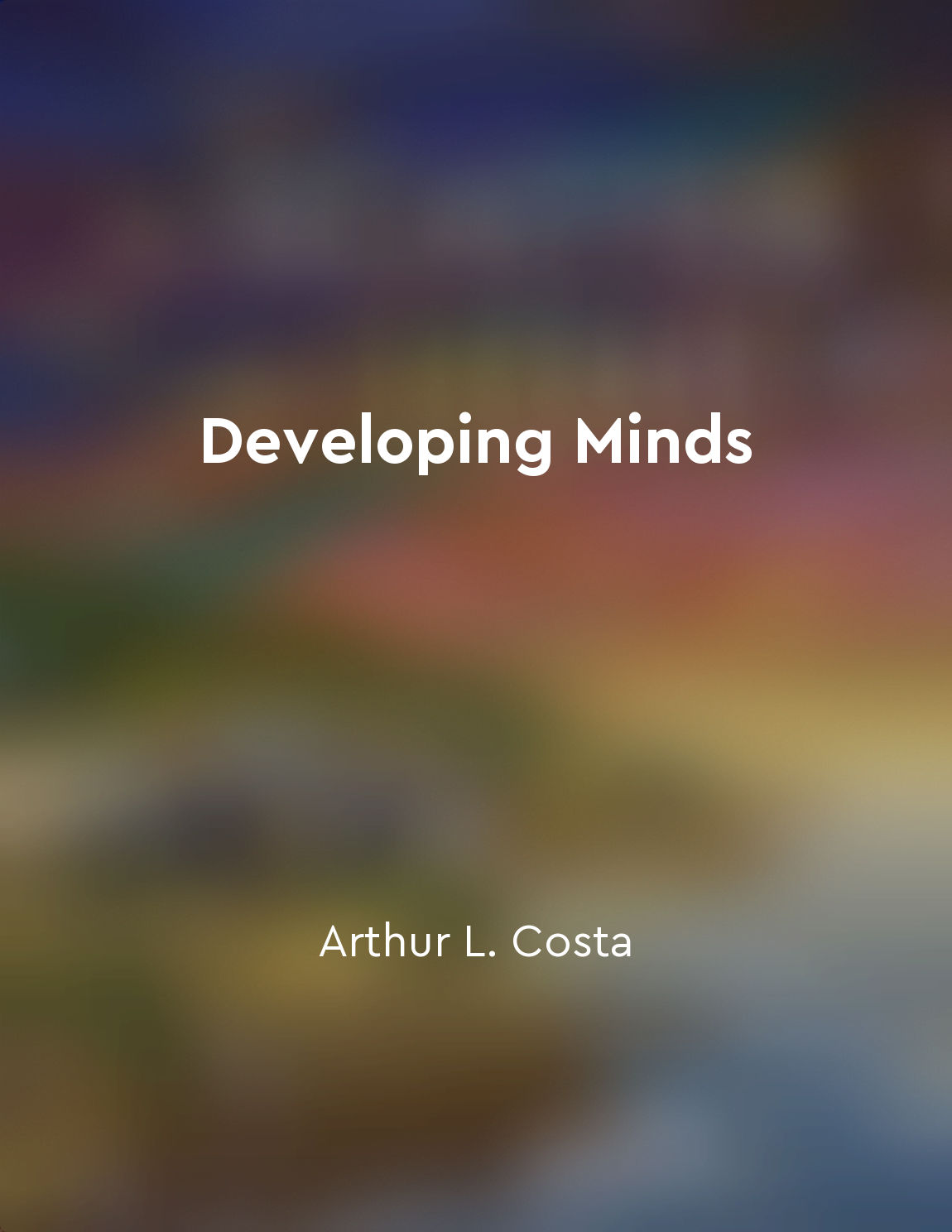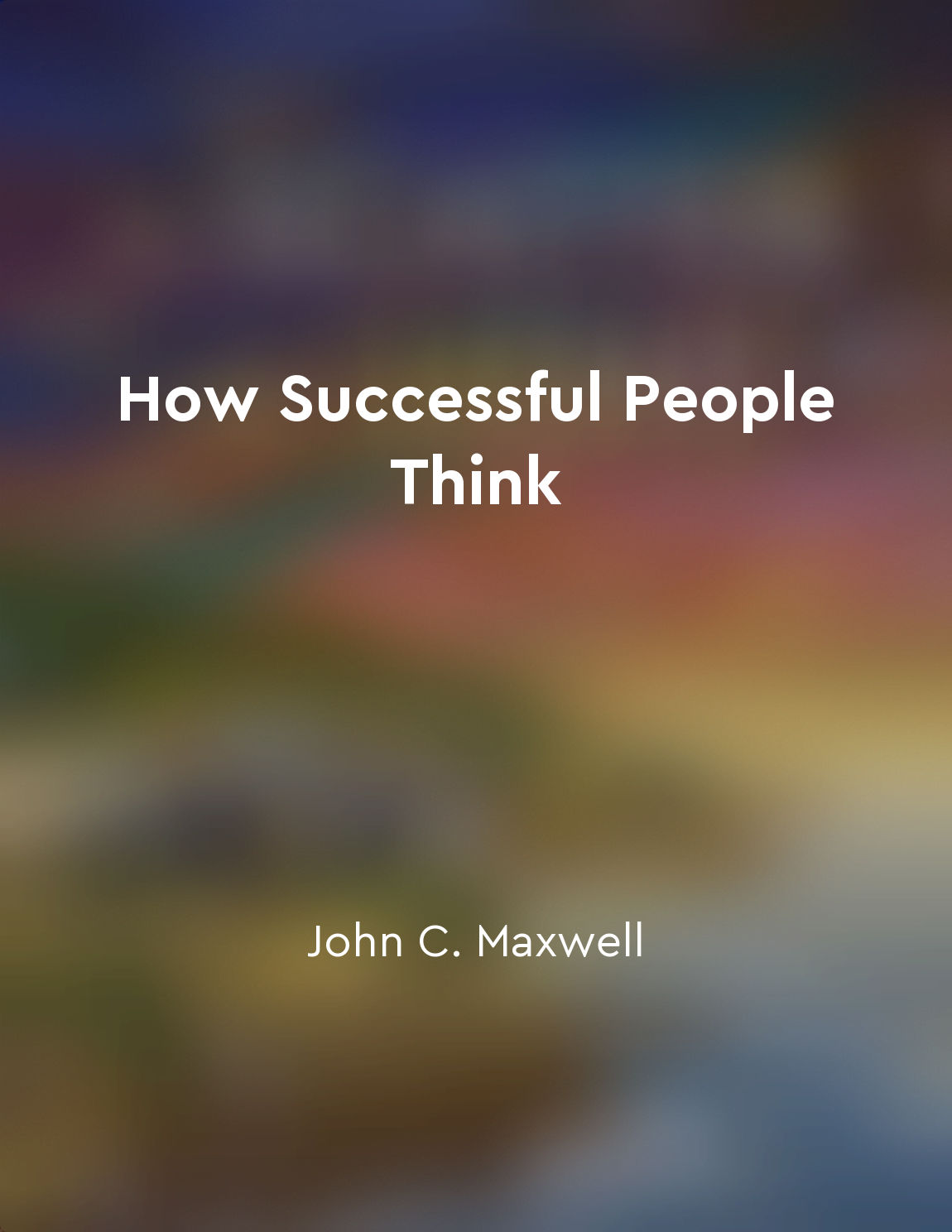Engage in active and reflective thinking from "summary" of How We Think by John Dewey
Engage in active and reflective thinking involves more than just passively receiving information. It requires actively questioning, analyzing, and evaluating what we encounter. This type of thinking is essential for developing a deeper understanding of a subject and forming our own opinions and perspectives. Active thinking involves actively engaging with new information by asking questions, making connections, and seeking out additional resources. It requires an open-minded approach that is willing to consider multiple viewpoints and perspectives. By actively thinking about what we learn, we can make deeper connections and gain a more thorough understanding of the material. Reflective thinking, on the other hand, involves taking the time to carefully consider and evaluate our own thoughts and beliefs. It requires looking back on our experiences and considering how they have shaped our perspectives. Reflective thinking allows us to identify biases and assumptions that may influence our thinking and helps us develop a more critical and nuanced understanding of a subject. Engaging in both active and reflective thinking is crucial for developing critical thinking skills. Critical thinking involves analyzing and evaluating information in a thoughtful and systematic way. By actively engaging with new information and reflecting on our own thoughts and beliefs, we can develop the ability to think critically about complex issues and make informed decisions. In summary, engaging in active and reflective thinking involves actively questioning and analyzing information while also taking the time to reflect on our own thoughts and beliefs. By developing these critical thinking skills, we can gain a deeper understanding of a subject and make more informed decisions.Similar Posts
Listen carefully to your opponent's points
When engaged in a debate or argument, it is crucial to pay close attention to what your opponent is saying. Listening carefully...
Stay focused on the issue at hand
When facing a challenging situation, it is crucial to keep your attention fixed on the matter at hand. Distractions can easily ...

Recognizing logical patterns aids in decisionmaking
Recognizing logical patterns is a crucial skill that can greatly enhance one's ability to make well-informed decisions. By bein...
The human edge lies in our ability to connect, collaborate, and innovate
At the heart of what sets humans apart in the rapidly evolving landscape of the modern world is our unique ability to form conn...
Practice regular selfassessment to track progress
Regular self-assessment is a critical component of effective studying. This practice involves taking the time to reflect on you...

Cognitive flexibility is a valuable asset for developing minds
Cognitive flexibility is indeed a valuable asset for developing minds. This ability allows individuals to adapt to new situatio...
Setting realistic goals is important
The importance of setting realistic goals cannot be emphasized enough. It is crucial for success in any endeavor, especially wh...
Resilience is necessary for overcoming challenges and growing cognitive capital
Resilience serves as a critical component in the journey of overcoming challenges and expanding cognitive capital. Challenges a...

Strategic thinking is a valuable skill
Strategic thinking is a valuable skill. When you think strategically, you are able to see the big picture. You are able to see ...
The decline of expertise threatens democracy
One of the most pressing challenges facing modern democracies is the erosion of trust in experts and expertise. As society beco...
